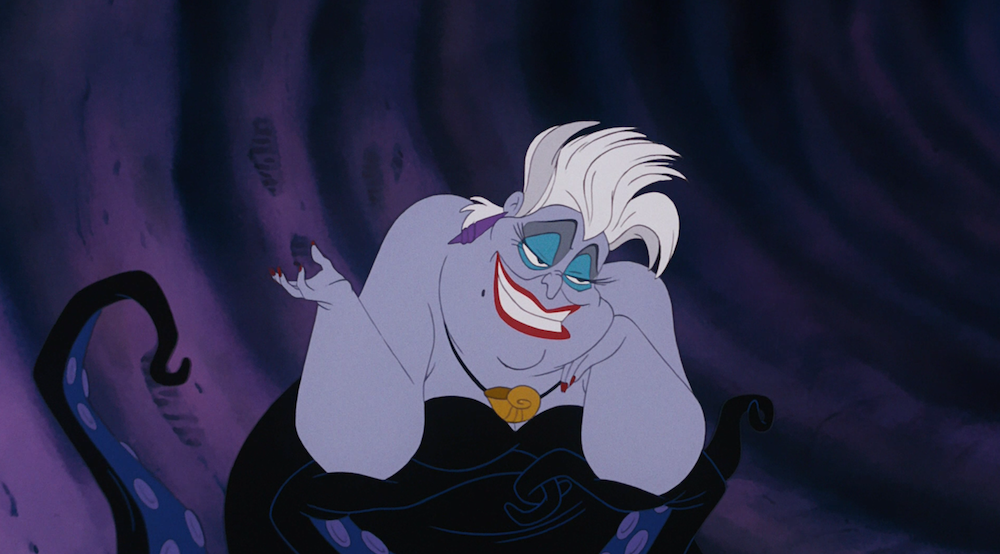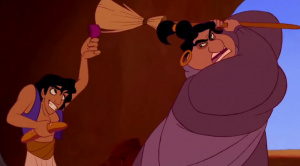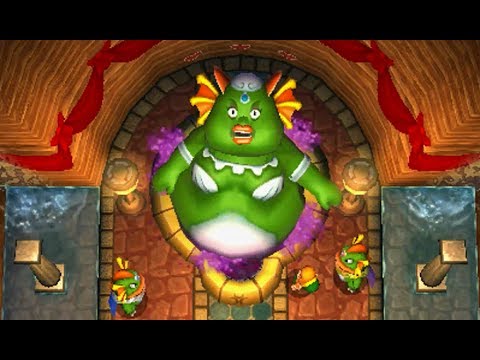The problem of fat-shaming stems from many places. First and foremost, it comes from the alarmist tendencies of reporting on the “obesity epidemic.” It comes from doctors seeking money from pharmaceutical companies, prescribing weight loss medications, cholesterol medications, and various procedures to people who typically do not even need them. It comes from a lack of understanding of what foods are “good” for you, what foods are “bad” for you, and how weight is truly gained and lost.
Another important reason to recognize and understand is the way fat people are portrayed in media and entertainment. Stereotypes applied to fat people in movies, television, literature, and games typically portray these characters as gluttonous, dirty, unhygienic, lazy, greedy, and evil. This aggressive narrative that all fat people are sad, self-loathing, desperate to be loved, and turned evil because of that is damaging and it provides a narrow scope of representation.
“Fat” As A Bad Word
Ever since the start of alarmist literature surrounding the West’s “obesity epidemic,” more and more attention has been paid to people’s weights, and not only by their doctors. Folks everywhere seem to find it in their right to comment on a person’s weight, how they look, what they are wearing, and what they are eating. It is no secret that a fat person eating a cheeseburger will be thrown dirty looks while a thin person eating a cheeseburger will likely be praised for their “quirkiness” and love of food. Even further, like many other problems people have with their bodies, fat people will receive abundant amounts of unwanted advice on how they can lose weight.

So what’s going on here? As this “epidemic” has gotten more public eye with the introduction of the internet, photo sharing, and fad diets, there has been unwelcome commentary from both sides. There are folks that perpetuate the “fat is unhealthy,” “fat is ugly,” and “fat is bad” narrative. Then there are the folks on the other side insisting that the use of this word is wrong; that kinder-sounding synonyms should replace the three-letter word that is meant to shame others.
The problem here seems clear—even though the folks who insist that we should use terms other than “fat” are trying to help, they are only helping to perpetuate a dangerous thought process. By refusing to use this word as a descriptor, people are acknowledging that it is in itself a “bad” word. It is a word to be used in hushed tones, never said to a person’s face, as it is a word synonymous with “ugly” and “gross,” and it is meant to shame others. Now, however, fat folks everywhere are starting to stand up to say “fat is not a bad word.”
In Movies and Television
In movies and television, poor character design choices when it comes to antagonists are easy to see; they are right in your face. This is an issue that begins in movies and television for young children, and one of the worst offenders of this trope is Disney.
Disney villains seem to follow some pretty strict patterns throughout their movies. Most always, a character is portrayed as aesthetically ugly in order to show their evil personalities. Often, though, these characters are designed to be significantly larger than the protagonists of the same stories.

Women and men alike (but lets be honest—women moreso) are designed to be fat and ugly to show that they are evil. Characters like Ursula, the Queen of Hearts, Madam Mim, and even Aunt Sarah (Lady and the Tramp) are designed to be heavy, ugly, and portray some deeply disturbing behaviors. These characters always end up defeated in the end, and often before the end of the film, go through various moments of shaming for stereotypes.
Beyond simple villainy, Disney has had its fair share of moments fat-shaming random characters. Take for example Bakhtawar from Aladdin. In the film, Aladdin accidentally enters a harem, where all of the women are small, thin, and beautiful. He is then pushed into Bakhtawar, the woman in charge of the harem, who is designed to be fat, ugly, and mean. The joke of course is supposed to be that the fat woman will harm Aladdin, who is much smaller than her, while all the thin, beautiful women giggle at him.

Another example can be found in the matchmaker from the film Mulan—the matchmaker does not have a husband herself, it is her job to teach all of the thin, beautiful, younger women how to be good wives. The matchmaker is mean and scary, and the scene gets perpetually worse with all of Mulan’s mistakes. By the end, the matchmaker has had her rump roasted, been doused with tea, and has an ink mustache with melting makeup—because, the joke is, of course, that fat women are not feminine.
In Video Games
Of course, all types of entertainment and media fall into the traps of poor character design, usually based off of stereotypes and current beauty standards. Video games are no exception, and are probably one of the most aggressive culprits of fat-shaming. The worst part about video games and their portrayal of fat people as “bad” is the fact that the player gets to deal with this villain, usually through means of violence.
In games, much like in movies, fat characters serve few purposes. They are villains, the punchline of a joke, or they serve no other purpose. Usually they are not playable characters, with the exception of popular characters like Mario of the Super Mario universe. They are typically represented as gross, terrifying, evil, dirty, food-obsessed, or in some way delusional about the way they look—insinuating that one must be ashamed of themselves if they are fat.
In games like The Legend of Zelda: A Link Between Worlds, fatness is used as a way to show a character has been put under a terrible curse. When the Zora Queen is saved from her curse, she transforms back into a thinner, more “beautiful” character. There were some issues with this game that went beyond that aspect, however; in the original Japanese version of the game, there were some instances of fat-shaming and jokes in the script. Many of these were changed in the English localization of the game.
Video games can cause more trouble than simply portraying fat characters in a negative or stereotypical light. Nintendo produced some issues with its release of Wii Fit, a game package that included a balance board and over 40 activities meant to help the player get in shape. The concept of this game is not problematic on its own; it’s actually a great idea and a fun way to get people, especially children, up and exercising. It was the execution that had a few bumps.
 Wii Fit allows people to weigh themselves and shows a person’s BMI, which is an inaccurate and outdated way to measure someone’s health. Wii Fit also allows a person to set goals for their fitness. Their is no limit to these goals, however, and this can be particularly dangerous when used by folks with a history of eating disorders. Beyond all of this, however, the Wii Fit uses gameplay to aggressively let people know when they are overweight.
Wii Fit allows people to weigh themselves and shows a person’s BMI, which is an inaccurate and outdated way to measure someone’s health. Wii Fit also allows a person to set goals for their fitness. Their is no limit to these goals, however, and this can be particularly dangerous when used by folks with a history of eating disorders. Beyond all of this, however, the Wii Fit uses gameplay to aggressively let people know when they are overweight.
What Can Be Done?
Fat-shaming and the belief that fat people should be ashamed to be fat is a societal problem, much like racism, homophobia, and other discriminatory behaviors. Before these attitudes can truly be changed, the issues must be tackled at the root.
There are steps to every process, though, and creating entertainment and media with better representation is a great step in the right direction. It is no secret that the gaming industry has a pretty severe diversity problem. Starting by creating more diversity in the people who make games will likely lead to more diversity and better representation within games. Such is the case with most industries—including running entire countries.
Seeing better portrayals of fat folks in entertainment and media rather than taking the easy way out and making them evil or the butt of a joke allows fat people in real life to have characters to relate to. It also shows other people that, yes, fat people are human too, and they have every right to have characters to relate to, fashionable clothing to wear, fun experiences, and days without nasty looks or comments. Fat people deserve humanity just like everyone else does, and while gaming might seem like a trivial fraction of the problem, fair representation can be one thing that helps start a domino effect.
Latest posts by Julia Brackett (see all)
- How the Evolution of Witches Affects Gaming - October 10, 2018
- Art as an Evocative Tool: A Talk with Lucah Developer melessthanthree - August 27, 2018
- Fat-Shaming in Villain Design - August 20, 2018
